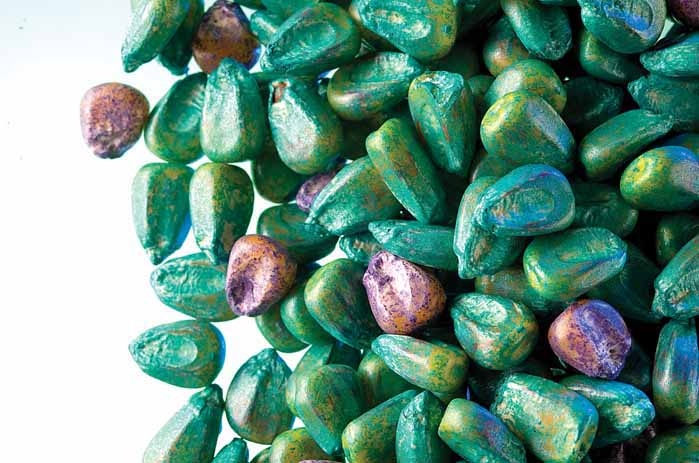
Very soon, 100% of corn and soybean seed will be sold with seed treatments. While corn already is at 100%, soybeans are expected to reach that level soon as companies perfect just-in-time seed treating for beans. In addition, the number of crop protection products applied in a treatment will increase and become more precise and effective at lower doses. The newest treatments now offer four fungicides and an insecticide in one treatment. Companies are also focusing on nematicides in treatments.
Wheat seed, traits developed
The world’s growing population needs wheat, and major seed companies have beefed up their wheat seed and trait programs in wheat to meet the challenge. Companies like Bayer CropScience have increased investments in wheat breeding and trait discovery. Building on the huge success they have experienced with corn and soybean traited seed, these companies no doubt hope to achieve the same with wheat seed.
Use of fungicides grows
The threat of Asian soybean rust several years ago heightened the demand for fungicides. Although rust didn’t spread into the Midwest, farmers did start using more fungicides without evidence of disease and still obtained yield boosts. Today, fungicides are becoming mainstream in many corn and soybean programs, especially those geared for very high yields.Although the use of fungicides without the evidence of disease pressure still has its skeptics, expect fungicides to increase in use and importance as crop protection companies hone their effectiveness and most-efficient use.
Traits fine-tuned
The seed trait industry for corn and soybeans is still in the early stages. More complex traits will arrive soon as trait developers fine-tune their discovery methods and home in on the multiple-gene traits. Farmers should expect some terrific traits in the future, like the ability to better utilize nitrogen, a series of drought-tolerant traits and more efficient feed utilization. And after last spring’s wet weather, farmers may eventually be able to buy seed that handles excessive water followed by drought.

About the Author(s)
You May Also Like






